Mental Health Day | Talking to @erklaerungsnot
People with mental or psychological illnesses are still exposed to strong taboos and stigmatization. Mental health is an issue that statistically affects everyone of us directly or indirectly. According to a recent study, more than a quarter of all German adults show symptoms of mental illness every year. This means about 17.8 million affected persons.
In addition, a mental disorder not only has an influence on the mental and physical health of those affected, but can affect all areas of life, such as school or work performance, relationships with family and friends and the ability to participate in the community. As a result, mental health affects our entire society.
Fortunately, more and more associations and initiatives are addressing the topic. They are working with various projects and campaigns to educate people about mental illness and destigmatize it. On occasion of the World Mental Health Day on October 10th, we interviewed an actor – Dinah Berger from @erklaerungsnot.
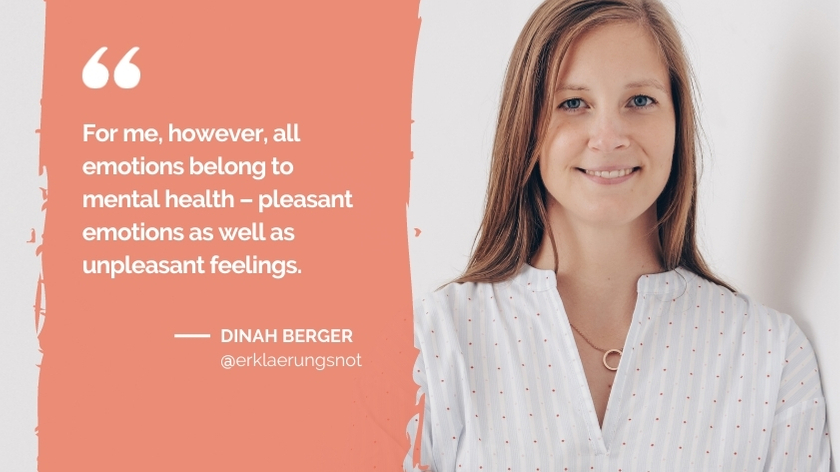
Hello dear Dinah. Mental health is your topic. For all who do not know you yet. Just introduce yourself: Who are you? What do you do? And how did you come to this?
I am 32 years old and after many years of working in the economy, I am currently studying psychology again. Besides my studies I am using my Instagram Account @erklaerungsnot for the destigmatization of mental illness. The idea and motivation comes from my own history, because about 2 years ago I slipped into a severe depression and found myself quite often in “Erklärungsnot” (need of explanation). I suddenly had to defend myself against many prejudices. On the other hand I noticed that many relatives want to help but are unsure how they can do so. With my work I want to reduce both prejudices and fear of contact.*
Many people associate health primarily with physical health. We know that people should do sports, eat healthy food and sleep a lot to stay fit. But what about mental health? How would you define mental or psychological health and are there any “prophylaxis” or special techniques to stay healthy?
I often realize that mental health in the general public is equated with happiness. For me, however, all emotions are part of mental health – pleasant emotions as well as unpleasant feelings. Also anger, fear or sadness often fulfill important functions in our lives. But in my opinion, mental health determines many more areas and determines whether and how we can pursue our goals and build interpersonal relationships or how we deal with ourselves (keyword: self-care). All these examples show that our mental health is as important as our physical health.*
With your Instagram channel @erklaerungsnot you sensitize people for mental illness and make a great contribution to raise awareness and to break the taboo. What do you think – what else can everyone, even as a “layman”, do to destigmatize mental illness?
In my opinion, language is a simple but important option that everyone can pay attention to in everyday life. It is important that we do not use terms that stand for mental illness in general language. Whoever has failed an exam, therefore has not suffered a “trauma”. If you had a bad weekend, you are not “depressed”, but probably rather stressed, sad or exhausted. The use of the adjectives gives the impression that mental illness is a daily occurrence and makes it difficult to understand those affected.*
What else would you wish for in the topic of mental health?
For the future, I would like “Mental Health” to become a school subject. We learn mathematical formulas and grammar as students, but nothing about how important our mental health is, how we can regulate emotions or take care of ourselves. This would be an important basis from which every student would benefit in later life.*
Further information about mental health
If you would like to learn more about mental health or get active against the stigmatization of mental illness, we have six great sources of information for you:
1 | Jugendnotmail
JugendNotmail is working for confidential and free online counseling to provide an open ear for young people as early as possible. Approximately 150 volunteer professionals provide advice on topics such as depression, self-harm, suicidal thoughts, abuse, mobbing or eating disorders.
You are a psychologist or social pedagogue and have time and interest to support JugendNotmail three to four hours a week on a voluntary basis in online counseling? Then have a look at the volunteering opportunity of JugendNotmail on vostel.de.
2 | Lebensmutig – Junge Selbsthilfe
On the Junge Selbsthilfe Blog the authors talk about their experiences in self-help groups, challenges in life and their very personal view on topics such as otherness, community and inclusion. It’s worth to have a look!
3 | dare2care
The initiative dare2care is the first contact point for psychological youth education in Germany: Its vision is a society in which every person is valued and supported in his or her uniqueness without stigmatization. To this end, they offer workshops for young people and school classes.
Currently you can support the initiative in the field of PR and public relations and help to ensure that even more people can benefit from dare2care workshops.
4 | Irrsinnig Menschlich e.V.
The association Irrsinnig Menschlich e.V. excites teenagers and young adults with prevention offers for mental health, in order to recognize first signs early and to give the topic also already at school, apprenticeship and study sufficient space. You can find more information on their website.
5 | Mental Health Initiative
The Mental Health Initiative actively promotes the social participation of people with mental illness and works against their stigmatization and exclusion. The focus is on a holistic view of the human being with all individual, psychological, physical and social aspects.
With vostel.de you can support the team online with the conception of workshops for students on the topic of mental health and, if you are interested, you can also be trained by experts on this topic.
6 | Aktionsbündnis Seelische Gesundheit
The Aktionsbündnis Seelische Gesundheit is a country wide initiative. Its more than 100 member organizations include the self-help associations of those affected and relatives of people with mental illnesses as well as many associations from the fields of psychiatry, health promotion and politics. On the website you will find a wealth of well-prepared information on all aspects of mental health.
More tips and information on volunteering you will find in our volunteer guide or through our social media channels (Facebook, Instagram, Twitter). Here we will keep you up to date on everything important in the world of volunteering! So feel free to drop in there as well! 🙂
Dinah Berger from @erklaerungsnot and your team from vostel.de
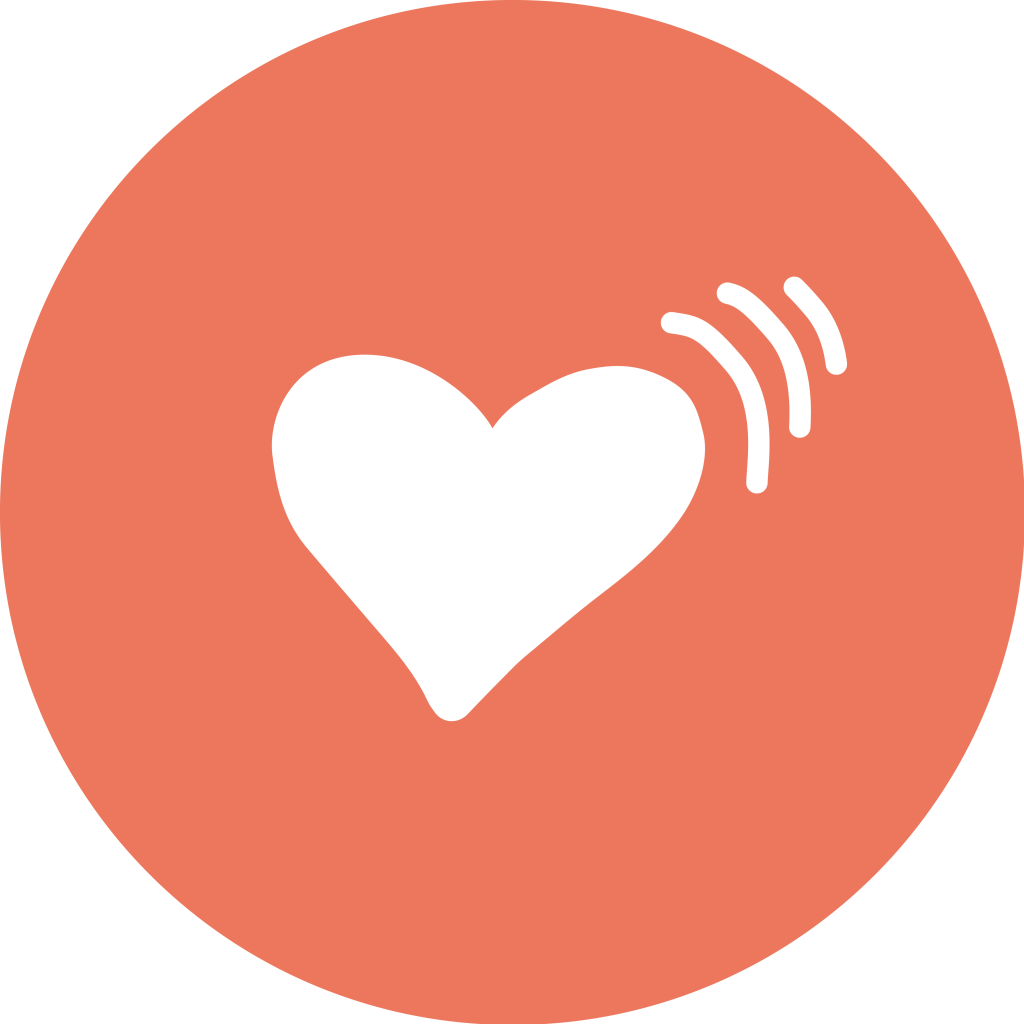
*translated from German


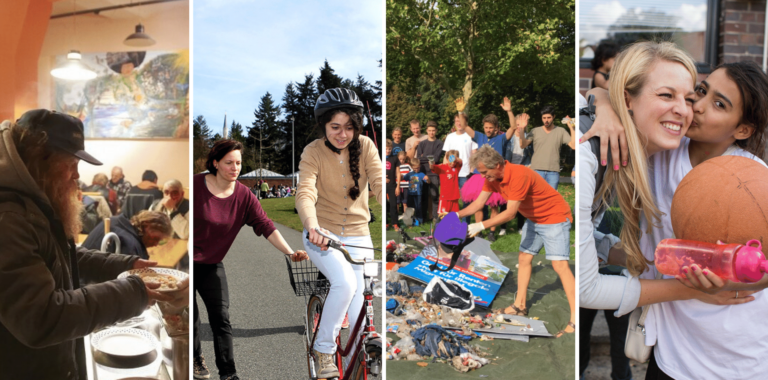
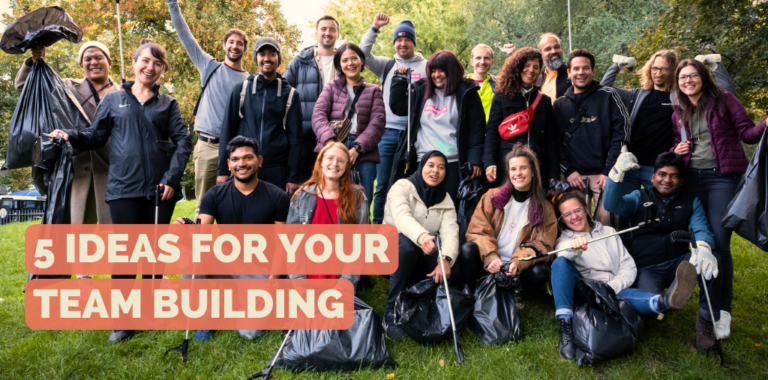
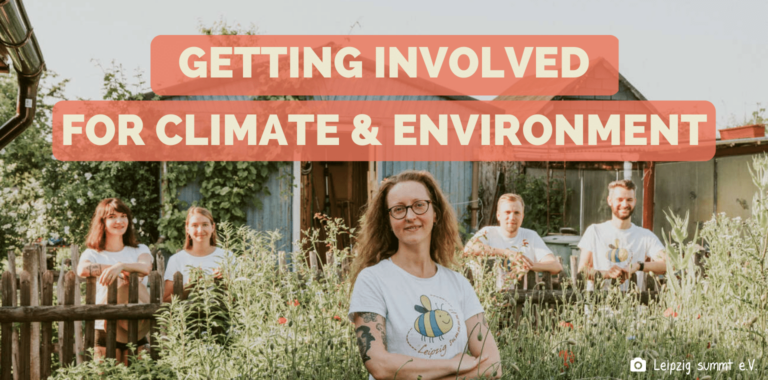
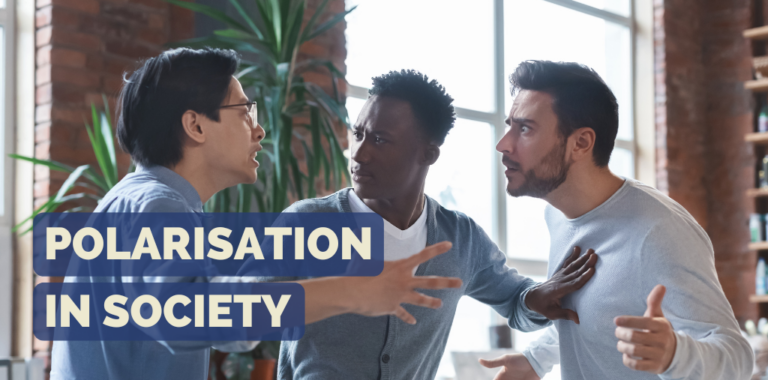
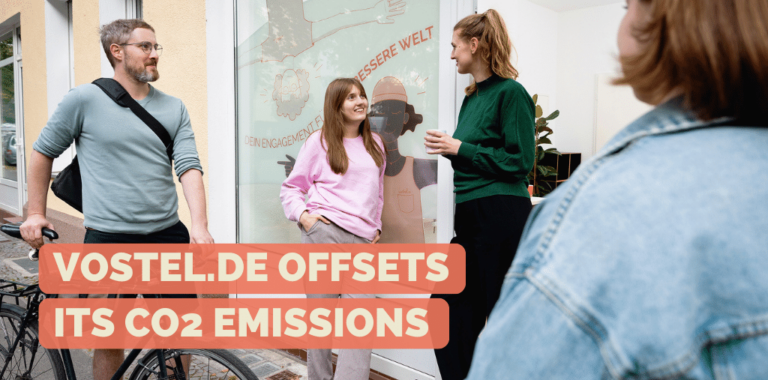
No Comments yet!